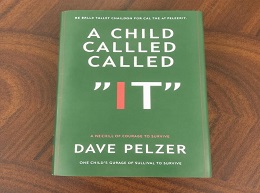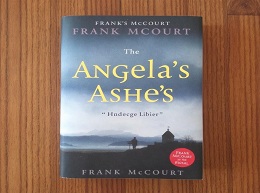The Liars Club

A Deep Dive into Mary Karr's "The Liars Club": A Masterful Memoir
Mary Karr's The Liars Club, published in 1995, is a seminal work in the memoir genre, acclaimed for its raw and evocative portrayal of a tumultuous childhood in a small Texas town. The memoir is a gritty, humorous, and poignant exploration of Karr's early years, marked by her family's dysfunction and her own resilience. Through vivid storytelling and rich characterizations, Karr brings to life the complexities of her upbringing and the broader social and cultural context of the American South in the 1960s.
Setting the Stage: Leechfield, Texas
The memoir is set in Leechfield, Texas, a Gulf Coast town that Karr describes with a mix of affection and disdain. The town itself becomes a character in the narrative, its culture and atmosphere shaping the lives of its inhabitants. Karr's portrayal of Leechfield is both nostalgic and critical, capturing the essence of a place where traditional values and rough edges coexist.
Example: The Oil Refinery
One of the defining features of Leechfield is its oil refinery, a symbol of both economic stability and environmental degradation. Karr's father, Pete, works at the refinery, and its presence looms large in the family's life. The refinery represents the harsh realities of blue-collar existence, where hard work and danger are part of daily life.
Family Dynamics and Dysfunction
Central to The Liars Club is Karr's depiction of her family, a cast of colorful and often troubled characters. Her father, Pete, is a hard-drinking, storytelling oil worker whose tales form the backbone of the "Liars Club," a group of men who gather to spin yarns and escape the harshness of their realities. Karr's mother, Charlie Marie, is a complex figure, struggling with mental illness and alcoholism, whose erratic behavior profoundly impacts the family.
Example: The Fire Incident
One of the most harrowing episodes in the memoir is the fire incident, where Charlie Marie, in a manic episode, attempts to set the family home on fire. This incident is a stark illustration of the volatility and danger that pervades Karr's childhood. Despite the trauma, Karr's narrative is infused with a sense of resilience and dark humor, capturing the paradoxical nature of her mother's influence.
Childhood Adventures and Misadventures
Karr's childhood is a mix of adventurous freedom and perilous encounters. She and her older sister, Lecia, navigate a world where the boundaries between safety and danger are often blurred. Karr's storytelling prowess shines in her recounting of these formative experiences, which range from whimsical to life-threatening.
Example: The Snake Incident
In one memorable anecdote, Karr describes a snake hunt with her father, which turns into a terrifying ordeal when a venomous cottonmouth snake gets too close for comfort. This incident encapsulates the blend of thrill and fear that characterizes much of Karr's childhood, highlighting her father's role as both protector and instigator of risky adventures.
The Role of Storytelling
Storytelling is a central theme in The Liars Club, serving as both a coping mechanism and a means of preserving family history. Pete's stories, in particular, are a source of comfort and continuity for Karr, providing a sense of identity and belonging amidst the chaos.
Example: The Alligator Story
One of Pete's most famous tales involves an encounter with an alligator, a story that Karr recounts with a mix of skepticism and reverence. This story, like many others, blurs the line between fact and fiction, illustrating the power of narrative to shape perception and memory.
Themes of Trauma and Resilience
Karr's memoir does not shy away from the darker aspects of her upbringing, including sexual abuse, mental illness, and addiction. However, it is also a testament to her resilience and capacity for survival. Karr's ability to find humor and beauty in the midst of hardship is one of the memoir's most compelling aspects.
Example: The Hospitalization
A pivotal moment in the memoir is Karr's hospitalization following a breakdown. This episode is a stark portrayal of the toll that her chaotic childhood takes on her mental health. Yet, it also marks the beginning of her journey towards healing and self-understanding.
Literary Style and Impact
The Liars Club is notable for its lyrical prose and vivid imagery. Karr's writing is both poetic and unflinchingly honest, capturing the complexities of her experiences with a unique blend of sensitivity and toughness. Her narrative voice is deeply personal, inviting readers into her world with a raw authenticity that is both engaging and moving.
Example: Descriptive Passages
Karr's descriptions of the Texas landscape and her family's home are richly detailed, evoking a strong sense of place. Her use of language is evocative, painting a vivid picture of the sights, sounds, and smells of her childhood environment. These descriptive passages add depth and texture to the memoir, immersing readers in Karr's world.
The Liars Club is a masterful memoir that offers a compelling portrait of a troubled yet resilient childhood. Through her vivid storytelling and rich characterizations, Mary Karr brings to life the complexities of her family and the broader social and cultural context of the American South. Her memoir is a powerful testament to the enduring impact of storytelling and the resilience of the human spirit.
For readers, The Liars Club is not only a deeply engaging read but also an important contribution to the memoir genre. It provides a candid and nuanced exploration of family, identity, and the ways in which we navigate the challenges and traumas of our lives. Mary Karr's narrative is a reminder of the power of memory and the importance of finding one's voice amidst the chaos.













